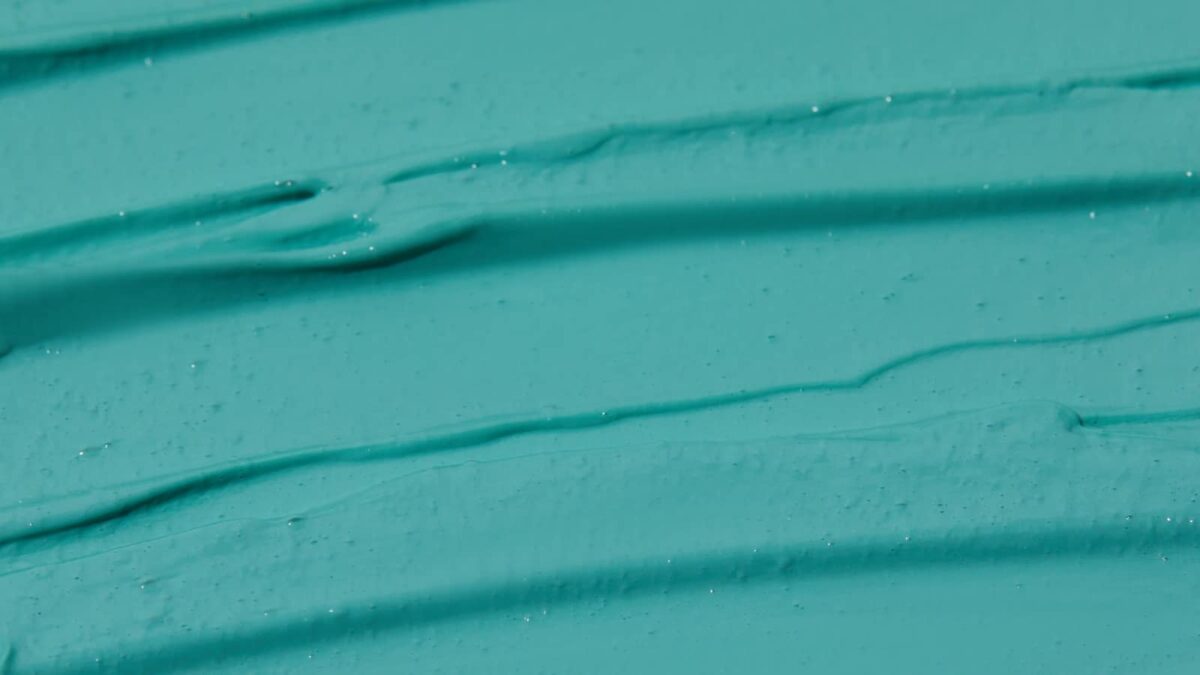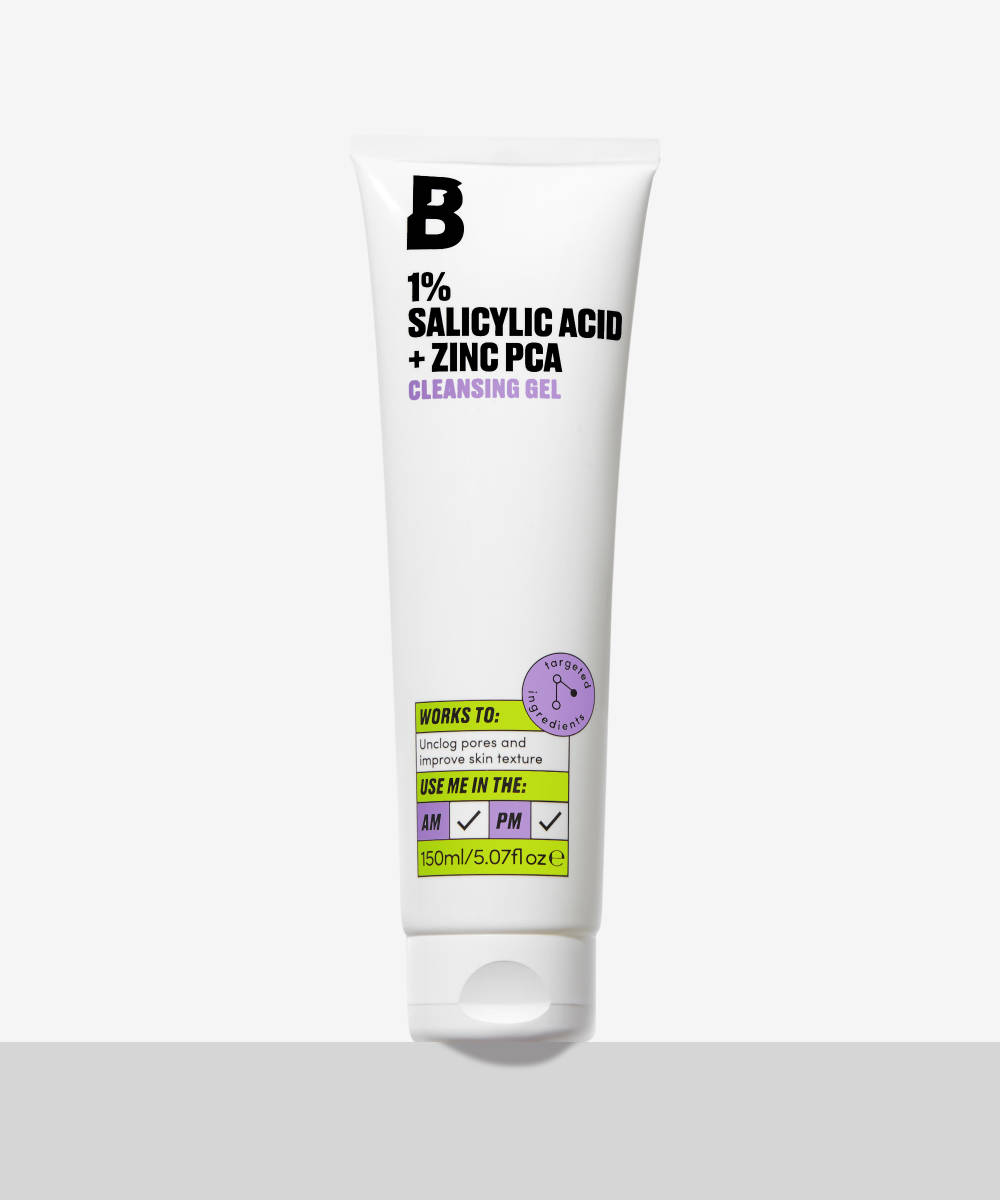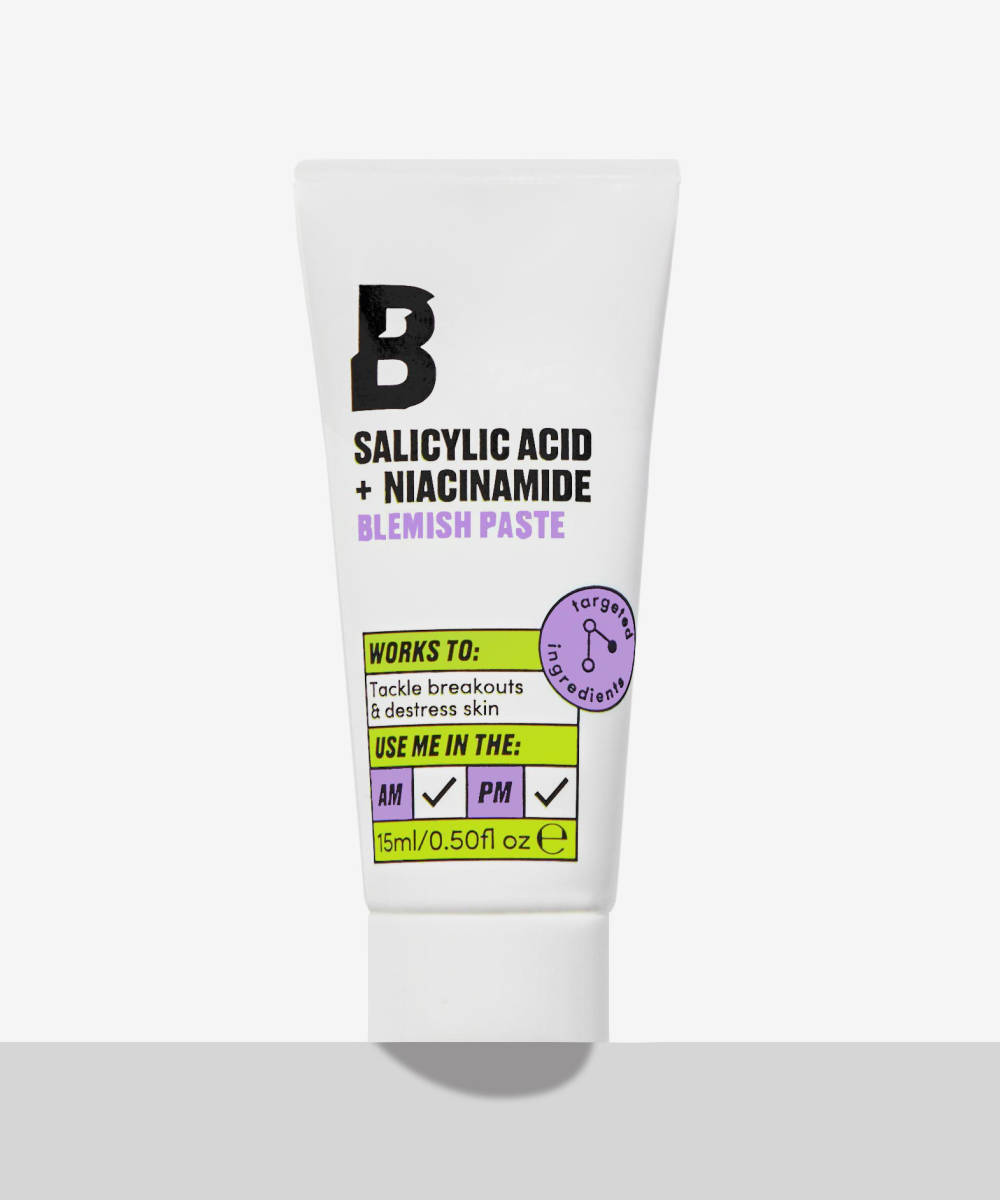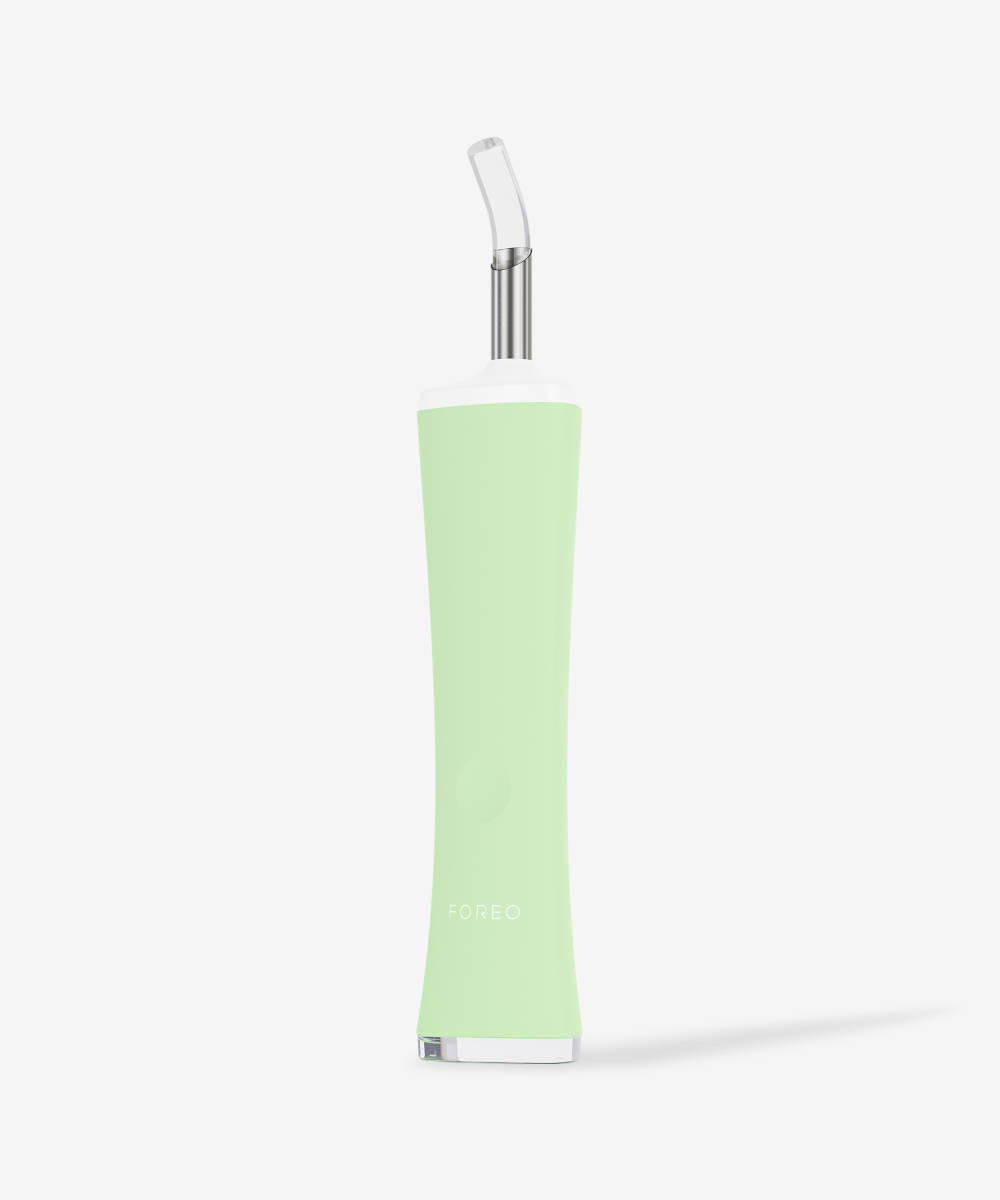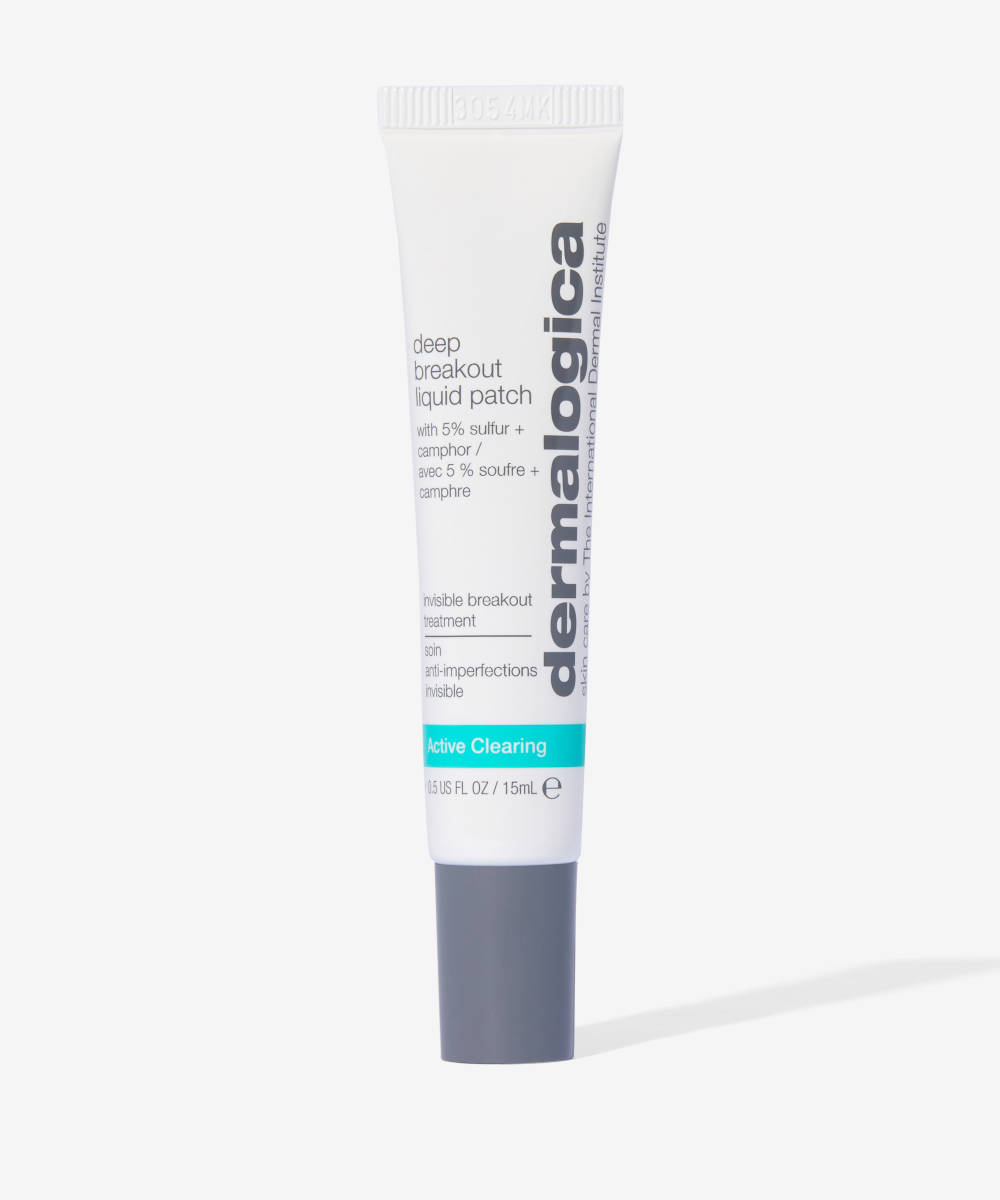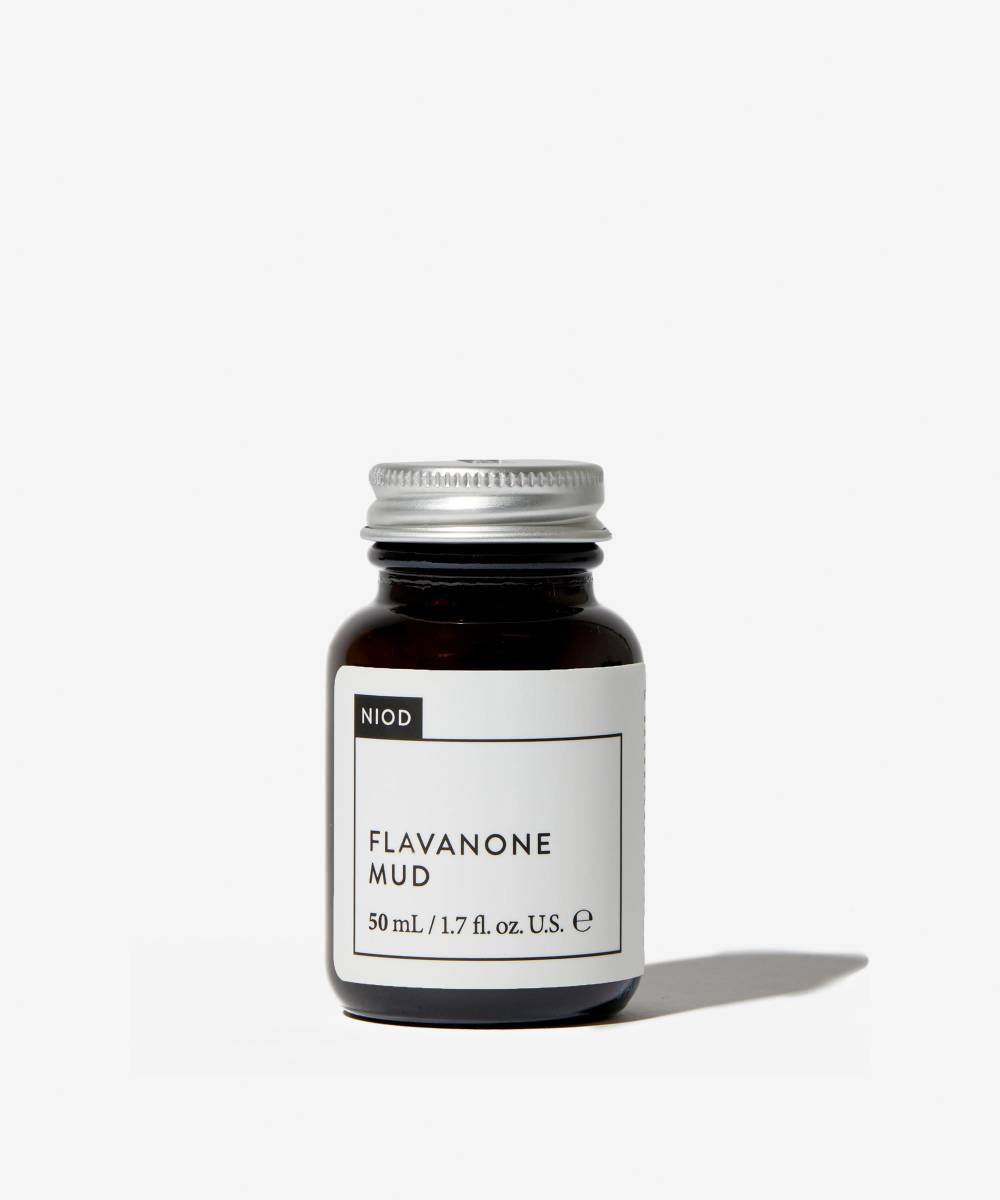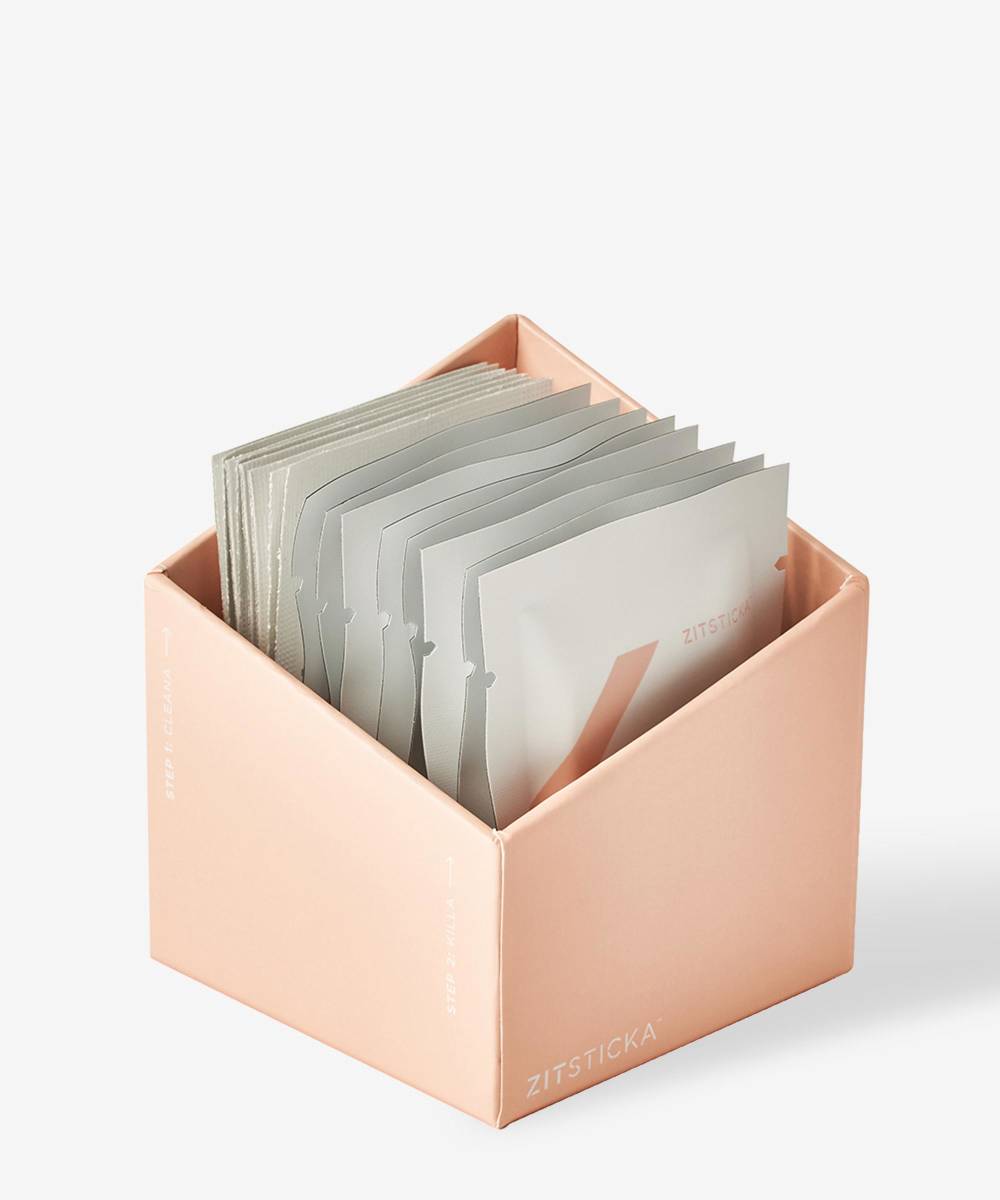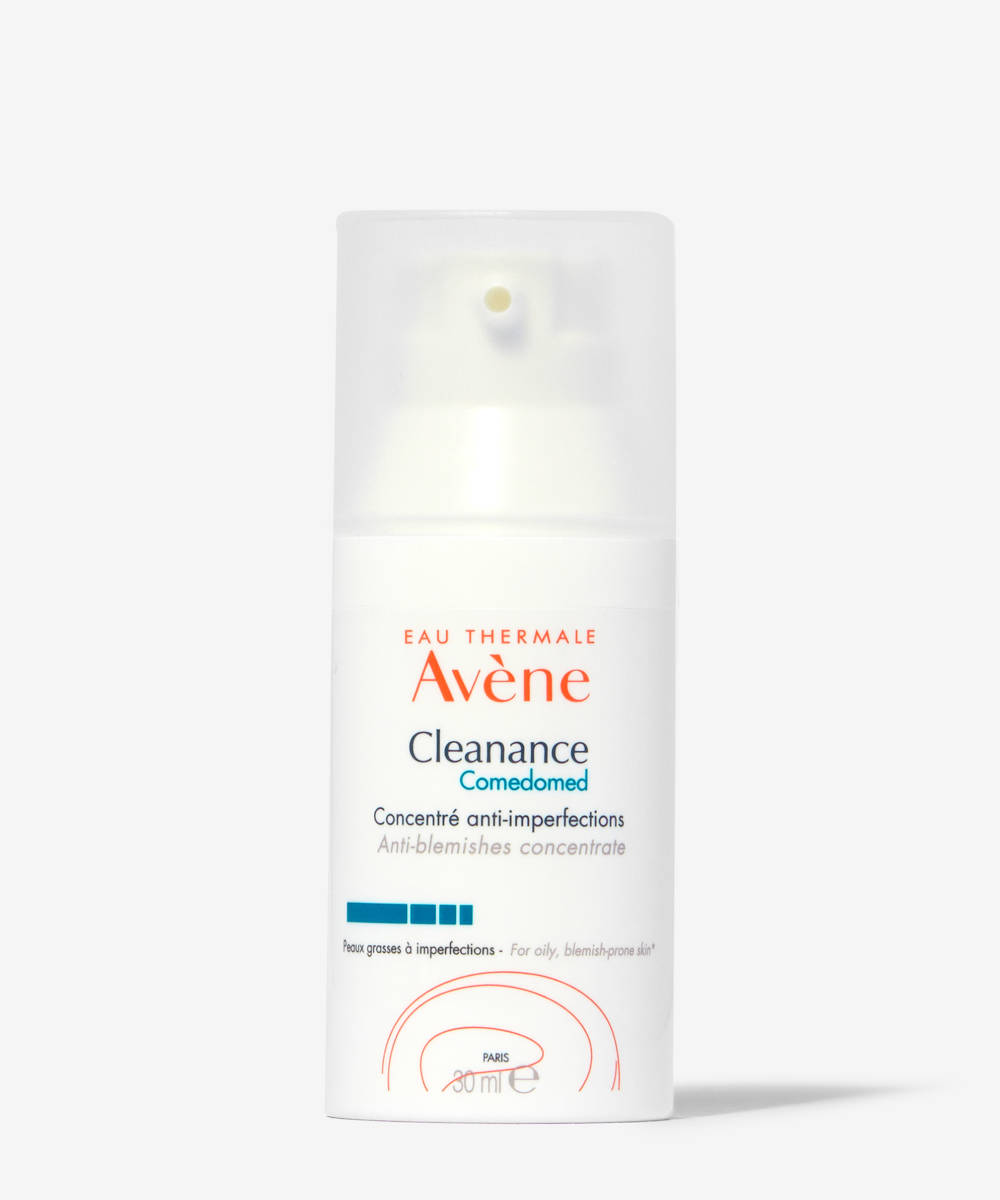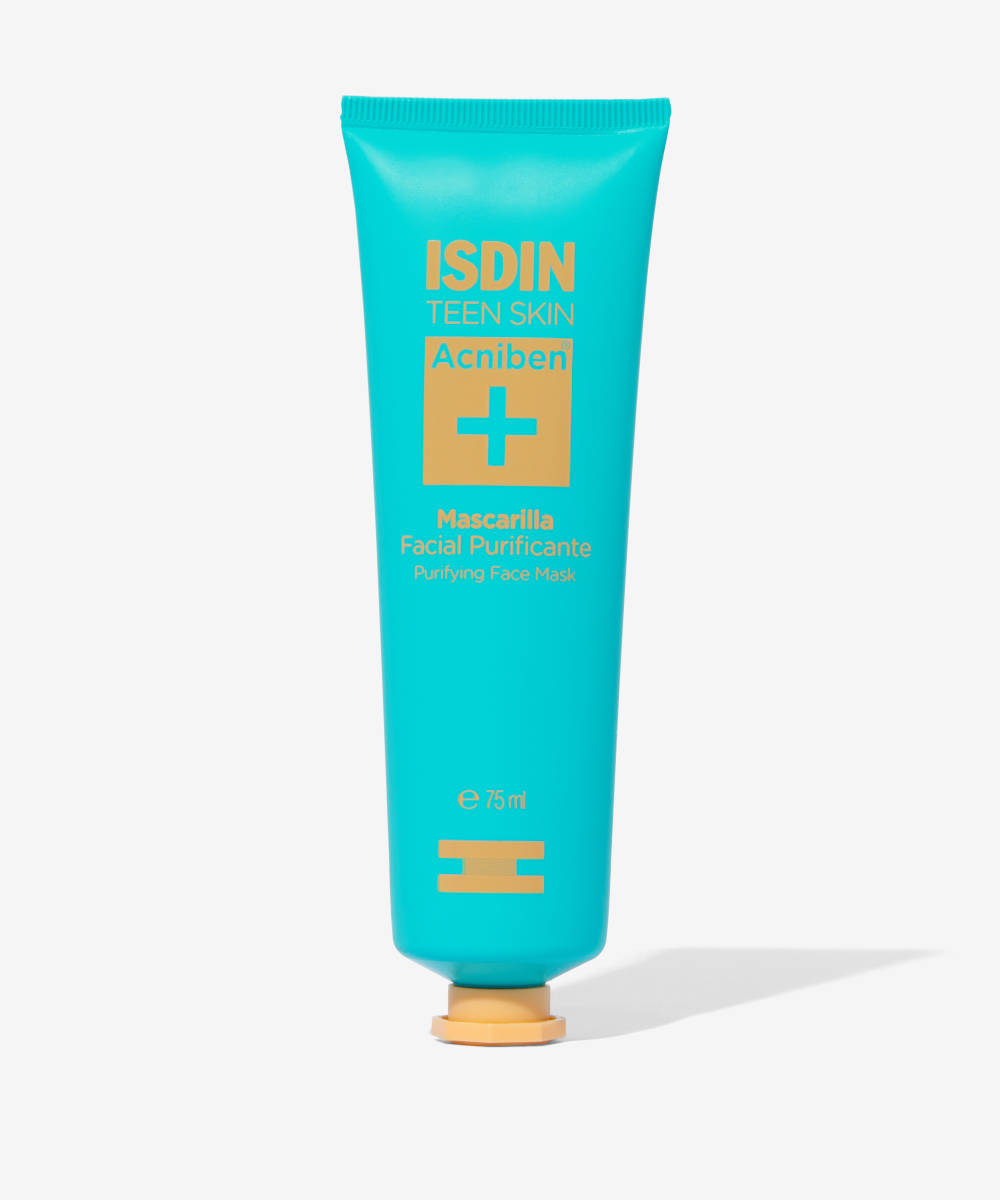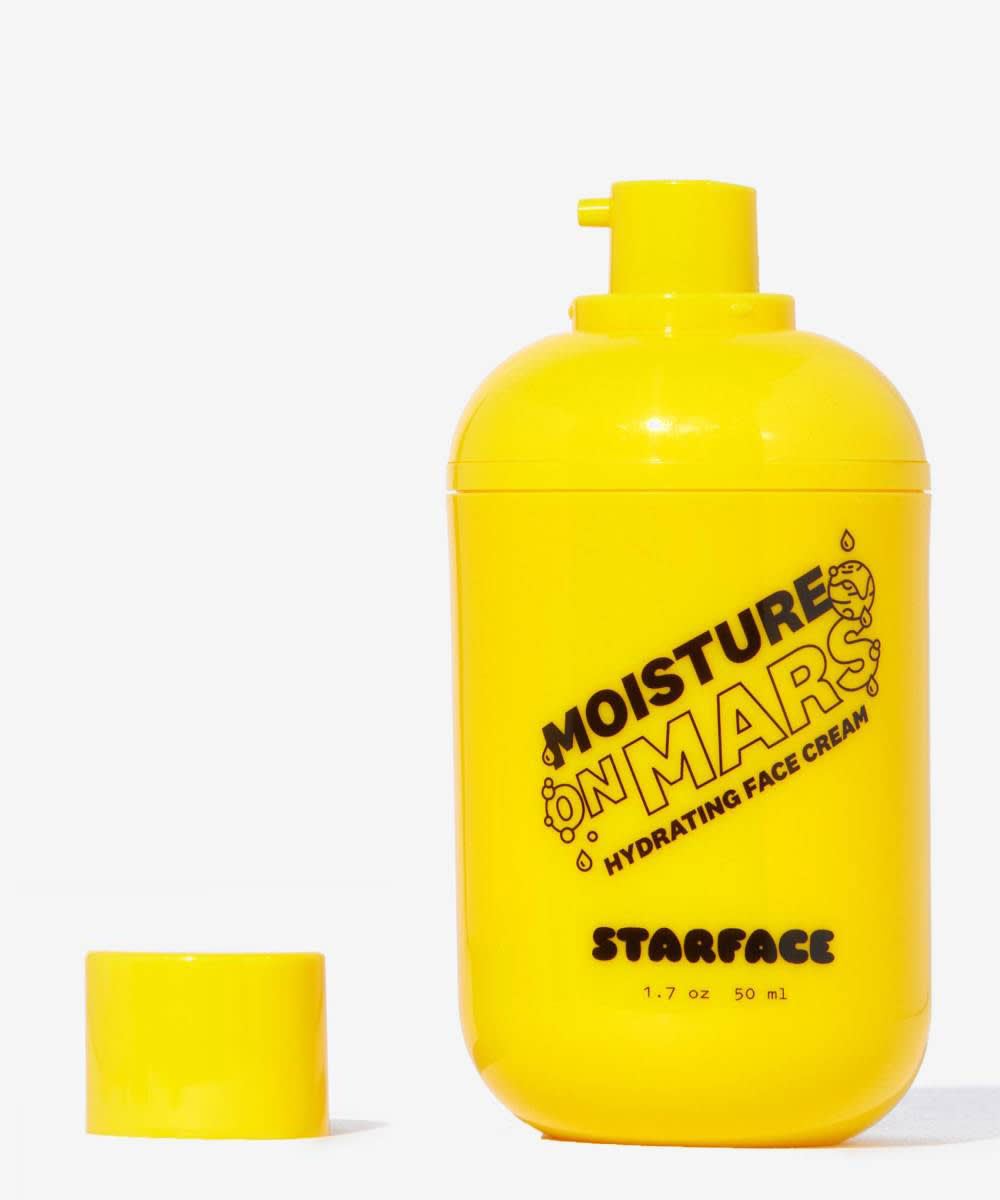Dear Grace,
I thought I’d got lucky when I made it through my teens with hormonal breakouts and a few whiteheads (probably induced by my non-existent skincare routine), but nothing too crazy… It turns out, my twenties are when my skin has decided to freak out. I cleanse, I tone, I use acids, I use treatments, and I moisturise, but still my acne keeps getting worse and worse. What am I doing wrong!? I keep hoping that I’ll ‘grow out of it’ but the day still hasn’t come. Please help!
Kirsty, 27
As someone who also experiences adult acne – despite having ready access to products, dermatologists on speed dial, and esthetician training under my belt – I can totally relate. Growing up with teenage acne I expected to say goodbye to breakouts as soon as I hit 18. Acne felt like that obligatory rite of passage that characterised puberty, and I anticipated that persevering through it would reward me with clear skin as an adult. Infact, my acne simply evolved, and here I am, aged 30 and still breaking out.
The good thing is, that’s not to say that there’s nothing that can be done to at least reduce and alleviate adult acne. To do so it’s important to understand what acne is and what triggers it. Spoiler alert: your skincare routine and the products you use are just a fraction of the factors that effect it.
So, let’s start with how acne forms. Our skin is covered in millions of tiny (often invisible) holes called pores, which help your skin to function by secreting sweat and oil. When the sweat and oil (sebum) isn’t properly secreted, it builds up and traps dead skin cells. The pores can also become clogged by pollutants and makeup, and eventually this buildup attracts bacteria, which also becomes trapped by the sebum and causes the pore to become inflamed, which results in a spot. This is why it’s important to clean your face daily, remove your makeup every night, exfoliate regularly, and occasionally use deep cleansing treatments like clay-based masks, which can help to remove buildup from your pores and keep skin clear.
One thing to note is that you can overdo it, and this can end up making your acne worse. When you keep breaking out all the time, it can be tempting to make a clay mask part of your daily routine, to exfoliate every day, and to use multiple skin-clearing peels and serums. The problem with this is that you will end up stripping away your skin’s moisture barrier. This removes the protective layer that helps to keep external aggressors out of your pores, so they will be exposed and more susceptible to bacteria and pollutants building up. Many people with acne also fall into the trap of believing that moisturisers and oils will clog their pores, so they stop using them. In fact, the more hydrated your skin is, the healthier it is, and if it’s healthy then it’s better able to function properly – fighting aggressors, clearing breakouts, and healing scarring. Depriving or stripping the skin of moisture can also encourage skin to produce more sebum as it attempts to ‘self-moisturise’, resulting in increased chance of clogges pores.
If you’re already cleansing your skin efficiently and using the best acne-fighting ingredients, you’re probably confused about why you’re still experiencing breakouts. The thing is your genes, hormones, environment, lifestyle, and diet are all contributing factors to how your skin functions and behaves. I’ve gone into a little more detail about them below.
The 7 main causes of acne:
1. Genetics
While there’s no specific ‘acne gene’, genetics do play a role in the way our skin behaves. Your genes can impact things like how well your immune system fights bacteria, the amount of sebum your skin produces, and the rate at which your skin sheds dead skin cells (desquamation). If you’re pre-disposed to a weak immune system, high sebum production, and slow desquamation, then you’re more likely to experience breakouts. Genetics also impact your hormone production, which leads us into the second factor…
2. Hormones
Your skin changes in response to the balance of estrogen and androgens (like testosterone) in your body – this can be influenced by genetics, but also by medication which effects hormones, such as birth control. Androgens directly affect the sebum glands, so the more androgens there are, the more active the sebum glands are. Estrogen also affects the sebum gland but suppresses sebum production. This explains why teenage acne is so common, as during puberty our hormones are more imbalanced and there is typically an increase in androgens in the body. For some people, this will reduce and balance out as they age, but others might have a genetic predisposition to increased androgens, which can result in adult acne, or acne that flares up at different points of the menstrual cycle or is triggered be certain medications.
3. Environment
Living or working in an environment with poor air quality or increased pollutants can increase the inflammatory response of the sebum glands. Likewise, dramatic climate changes like changing seasons, humidity, and temperature can influence skin’s oil production. Efficient cleansing and exfoliation will help to remove residual pollution and grime, and oxygenating facial treatments can help as acne bacteria cannot thrive in an oxygen-rich environment.
4. Lifestyle
If you’re stressed or anxious then this could be impacting your skin too. Stress stimulates the adrenal glands, causing them to produce cortisol hormones which leads to more oil production. Likewise if your adrenal glands are constantly secreting adrenalin to keep up with a fast-paced lifestyle, this can also create a hormonal imbalance that effects the skin. Exercise, yoga, and meditation are great tools to reduce stress as they release endorphins and serotonin which break down the cortisol.
5. Hygiene
Pressure or friction from things touching your face can transfer bacteria to the skin and induce a breakout. Avoid leaning on your hands and consider how clothing, hair, glasses, face coverings, or your mobile phone might be routinely touching your face. Ensure that you use only clean towels and flannels, make sure you wash your makeup brushes regularly, apply skincare with freshly washed hands, and change your pillowcase as frequently as possible. I’d also recommend double cleansing, to ensure that makeup, SOF, pollution, and dirt is properly removed from your face each night.
6. Diet
There are a number of studies linking diet to acne. Foods with a high glucose index, processed foods, and dairy are thought to contribute to acne. Eating a healthy balanced diet and drinking plenty of water is a good place to start. You could also consider supplements like probiotics (which help to reduce inflammation, strengthen the skin barrier, and fight bacteria) or vitamin D (as vitamin D deficiency is more common in people with acne).
7. Products
Products are never entirely to blame for causing breakouts, but if you’re not using products that are well suited to your skin, then they can certainly contribute. For example, over-exfoliating your skin and mixing active ingredients can damage your skin barrier, which makes your skin more susceptible to breakouts forming. In addition, using heavy, oil-based creams can clog pores.
So, in a nutshell, any of the above factors can trigger acne by impacting your hormones or sebum production, which leads to the increased chance of congestion and breakouts. While some of them might seem out of your control, it’s important to be aware of them so you can figure out your potential triggers and make any changes you need to. Look out for products with salicylic acid (which can penetrate sebum to clear congestion) or lactic acid (which removes dead skin cells), utilise spot patches (which block irritants from congested pores – and act as a handy concealer), and consider LED light therapy (which works to kill bacteria and reduce inflammation). Of course, you might also consider speaking to a doctor, dermatologist, or dietician for advice, especially when it comes to things like diet and medication.
Good luck with your skin – I’m sorry I can’t give you a cure (because unfortunately there isn’t one!), but I hope that some of the above advice and below product recommendations (Dermalogica have a fantastic range designed for adult acne) will help you to identify your triggers and make the right changes. Above all, remember to be patient, take baby steps, and know that you’re not alone!
Try these...
If you have a question for our beauty editor and resident esthetician Grace Day, tweet us at @beautybay using the hashtag #AskGrace for a chance to be featured.
